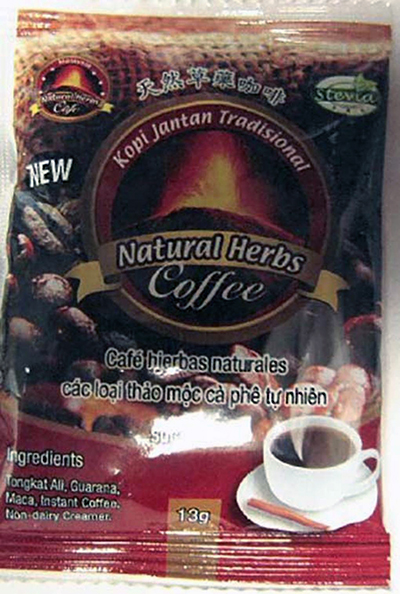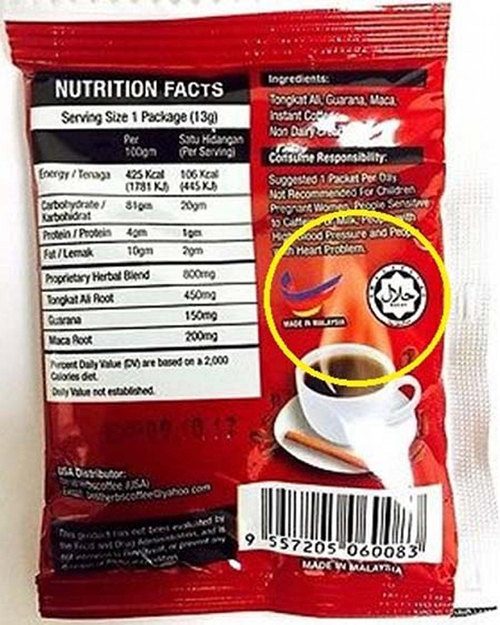Food Fraud: Problem Solved? Learn more at the 2019 Food Safety Supply Chain Conference | May 29–30, 2019 | Attend in Rockville, MD or virtually The typical motivation for food fraud is replacing a more expensive ingredient with a less expensive one, thereby increasing profits or competitiveness on the market. Another form of fraud involves the use of active pharmaceutical ingredients in products marketed as dietary supplements or foods containing dietary supplements.
Last month, an instant coffee drink purportedly containing “natural herbs” tongkat ali, guarana, and maca was reported to actually contain two pharmaceutical ingredients (APIs) approved by the FDA for the treatment of male erectile dysfunction. In this case, the motivation for fraud is “spiking” with the “intent to impart an effect that cannot be achieved by the dietary ingredients alone.” This is an ongoing challenge for regulators and other stakeholders who work to ensure the safety of the supplements market. This type of fraud in dietary supplements is also an important health risk to consumers, since unintentional consumption of APIs can result in unintended side effects or adverse interactions with other drugs. A quick glance at the FDA’s Medication Health Fraud Page illustrates how common this type of adulteration is, most notably in products advertised for erectile dysfunction, weight loss and sports performance.
In March, an energy drink was banned in Zambia after Ugandan authorities determined it contained sildenafil citrate (the active ingredient in Viagra). In 2015, Chinese authorities investigated distillers of a popular liquor under suspicion of adding the same substance. Adding to the challenge of this type of fraud is the fact that certain consumers may view food and dietary supplement products containing APIs as more appealing, not less.
Both manufacturers and consumers should use good judgment when purchasing dietary supplements or foods marketed as containing dietary supplements. There are educational resources available for consumers and guidance for industry to support the quality assurance and safety of these products. These include the NIH Office of Dietary Supplements and the National Center for Complementary and Integrative Health, the American Botanical Council, the American Herbal Products Association and USP.
 |
 |
| Images of the recalled product from FDA’s website. Records involving fraud can be found in the Food Fraud Database. | |






